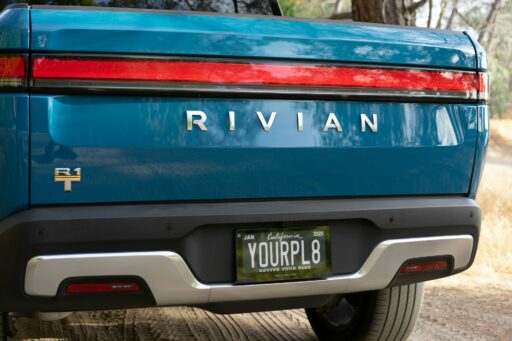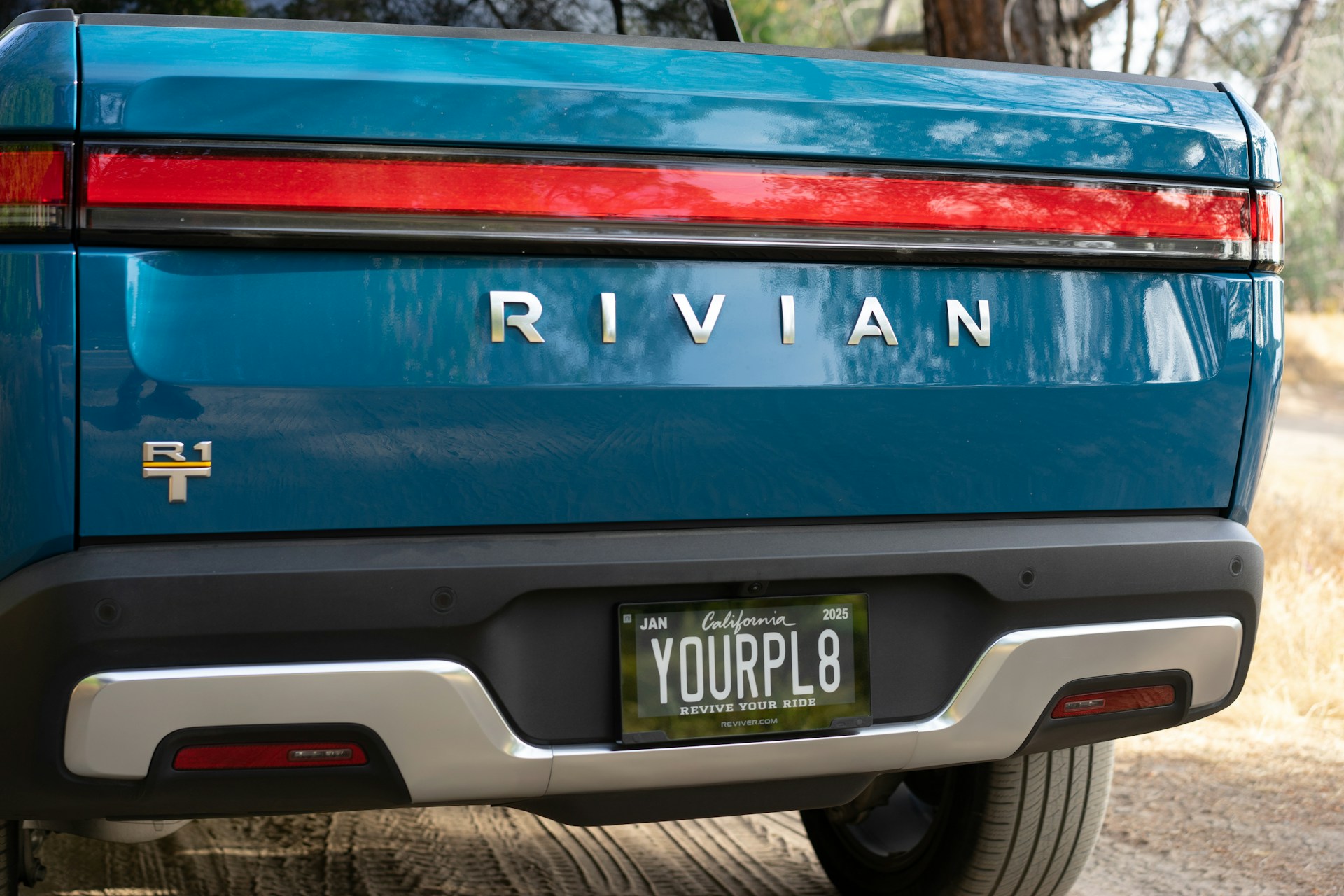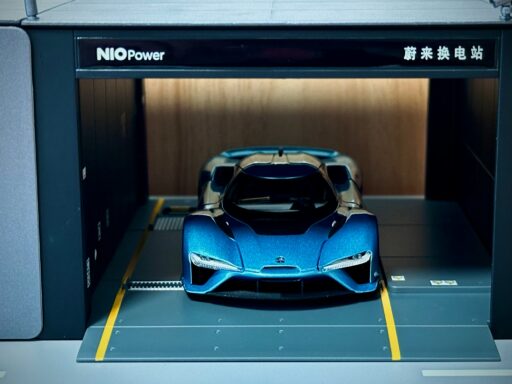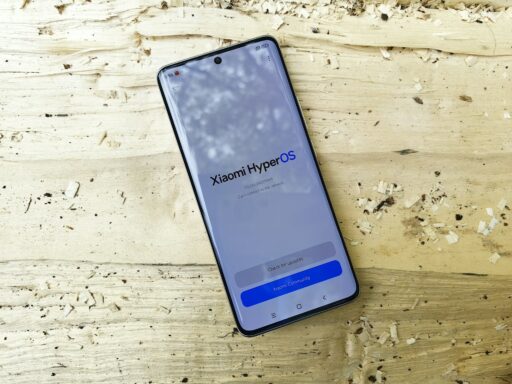Rivian Automotive, Inc., an electric vehicle (EV) manufacturer founded in 2009, has become a standout player in the electric mobility and clean energy sectors. Focused on producing sustainable electric vehicles and integrating innovative technologies, Rivian’s mission is to drive the transition to a low-carbon economy through electrification. Known for its adventure-oriented electric trucks and SUVs, Rivian is committed to producing high-performance vehicles while prioritizing sustainability. The company aims to make a lasting impact on the automotive industry, reducing dependency on fossil fuels and lowering carbon emissions, both within its own operations and through its product offerings.
In 2024, Rivian continues to scale up production of its fully electric R1T pickup truck and R1S SUV, both designed with sustainability at their core. Additionally, Rivian’s Amazon delivery vans, another significant product, align with the company’s mission to promote zero-emission vehicles. Rivian’s approach to sustainability is evident not only in its vehicles but also in its supply chain and operations, where it aims to achieve net-zero carbon emissions in its manufacturing processes and across its entire value chain by 2040.
- Rivian plans to produce 400,000 vehicles annually by 2027, accelerating the adoption of electric vehicles globally.
- The company has committed to achieving net-zero carbon emissions across its entire operations and supply chain by 2040.
- Rivian’s partnership with Amazon has led to the creation of 100,000 electric delivery vans, with the first batch deployed in cities worldwide.
Source: https://www.rivian.com
Sustainability Strategy and Goals
Rivian’s sustainability strategy revolves around building a cleaner future by transforming the transportation sector through electric vehicles. The company is committed to reducing the environmental impact of its manufacturing processes, vehicle production, and operations. Rivian’s long-term sustainability goals are anchored in the transition to renewable energy, reducing carbon emissions across its value chain, and developing products designed to support the shift to a sustainable, circular economy.
Central to Rivian’s strategy is its commitment to achieving net-zero carbon emissions by 2040. This includes reducing Scope 1, 2, and 3 emissions throughout the company’s operations, supply chain, and product lifecycle. Rivian focuses on sustainable sourcing of materials, minimizing waste, and using renewable energy in its manufacturing plants. The company is committed to a circular economy approach, where products and materials are designed for recycling, reuse, and remanufacturing.
Rivian’s focus is not only on vehicle electrification but also on addressing the environmental challenges posed by traditional manufacturing. The company has made strides to source materials sustainably and work closely with its suppliers to reduce their environmental impacts. Rivian also aims to help its customers reduce their carbon footprints by offering energy-efficient vehicles that integrate clean technology.
- Rivian has set a target to reduce its carbon emissions by 50% by 2030 through operational improvements and sustainable supply chain practices.
- By 2025, Rivian plans to increase the percentage of recycled and sustainably sourced materials used in its vehicles by 30%.
- The company is aiming for 100% renewable energy use across its manufacturing plants by 2027.
Source: https://www.rivian.com/sustainability
Key Sustainability Innovations and Technologies
Rivian has demonstrated innovation through its commitment to clean technology and sustainability in its product design and manufacturing processes. One of the key innovations is Rivian’s skateboard platform, an electric vehicle architecture designed to be versatile and adaptable for a wide range of EVs. This platform not only reduces manufacturing complexity but also minimizes the environmental impact of vehicle production by increasing efficiency.
Additionally, Rivian’s electric trucks and SUVs, such as the R1T and R1S, are designed to deliver outstanding performance while maintaining sustainability. The vehicles are built using recycled and sustainably sourced materials, including sustainable leathers and textiles. Rivian also prioritizes reducing vehicle weight to improve energy efficiency and range, directly benefiting the environment by lowering energy consumption.
Rivian’s partnership with Amazon has resulted in the development of a fleet of electric delivery vans that will help Amazon reduce its carbon footprint significantly. These vans are equipped with energy-efficient technologies that enable low-emission deliveries, helping to shift the logistics and delivery sector toward sustainable practices.
- Rivian’s electric trucks and SUVs are made with sustainable materials, including recycled aluminum and plant-based textiles.
- Rivian’s electric delivery vans are expected to reduce carbon emissions by 20% per vehicle compared to traditional internal combustion engine vans.
- The skateboard platform reduces the environmental impact of vehicle production, allowing for more efficient use of resources and materials.
Source: https://www.rivian.com/innovation
Measurable Impacts
Rivian has made significant strides in reducing carbon emissions and improving the environmental performance of its products. In 2023, Rivian’s electric vehicle sales resulted in the reduction of over 150,000 metric tons of CO2 emissions compared to conventional internal combustion engine vehicles. Rivian is also reducing its operational carbon footprint by transitioning its manufacturing plants to 100% renewable energy. In addition, the company has committed to reducing emissions through energy-efficient vehicle designs and optimizing its supply chain.
By 2027, Rivian plans to scale up its electric vehicle production to 400,000 units annually, which will result in further reductions in carbon emissions and help meet the growing demand for sustainable transportation. The company’s partnership with Amazon to deploy electric delivery vans in major urban areas is another significant step in reducing emissions from the transportation sector, which is one of the largest contributors to global greenhouse gas emissions.
- Rivian’s electric vehicles have reduced more than 150,000 metric tons of CO2 emissions since its launch.
- The company has reduced its manufacturing emissions by 30% through the implementation of energy-efficient technologies and processes.
- Rivian’s electric delivery vans are expected to prevent the emission of over 5 million metric tons of CO2 annually once fully deployed by 2030.
Source: https://www.rivian.com/sustainability
Challenges and Areas for Improvement
Despite its advancements, Rivian faces several challenges in scaling up its sustainability efforts. One major challenge is the sourcing of raw materials for electric vehicle production, including lithium, cobalt, and nickel, which are critical for the batteries. While the company is committed to sourcing materials responsibly and minimizing the environmental impact of mining, it remains a challenge to ensure that all materials used in EV production are sustainably sourced.
Another challenge lies in expanding production capacity to meet the growing demand for electric vehicles. As Rivian works to ramp up production of its R1T, R1S, and delivery vans, it must manage the complexities of scaling manufacturing operations while ensuring that its supply chain remains sustainable and efficient.
Additionally, the challenge of recycling EV batteries at scale remains a significant barrier for the broader EV industry. Rivian is actively exploring options for battery recycling and has committed to developing more efficient ways to repurpose and reuse battery materials as part of its sustainability strategy.
- Rivian is working to improve its battery recycling processes to ensure that more than 75% of materials can be reused by 2030.
- The company aims to partner with suppliers to reduce emissions by 20% within its supply chain by 2025.
- Rivian plans to continue its research into alternative materials for batteries to reduce dependency on rare minerals and improve sustainability.
Source: https://www.rivian.com/sustainability
Future Plans and Long-Term Goals
Rivian’s long-term sustainability goals include achieving net-zero carbon emissions by 2040, increasing the use of recycled and renewable materials, and expanding its electric vehicle production capacity. The company plans to focus on improving the energy efficiency of its manufacturing facilities, optimizing its supply chain, and further reducing the environmental impact of its vehicle production.
Additionally, Rivian is committed to advancing battery technology and recycling initiatives to ensure that its electric vehicles and batteries have minimal environmental impact throughout their entire lifecycle. The company plans to continue working closely with its suppliers and partners, including Amazon, to promote sustainability across its operations and the broader electric vehicle ecosystem.
- Rivian is aiming to reduce its manufacturing emissions by 50% by 2030 through energy efficiency and sustainable production practices.
- The company plans to recycle 75% of the materials used in its batteries by 2030.
- Rivian intends to transition all of its manufacturing plants to renewable energy by 2027.
Source: https://www.rivian.com/sustainability
Comparisons to Industry Competitors
Rivian’s sustainability efforts are aligned with other major players in the electric vehicle and clean technology sectors, such as Tesla, Lucid Motors, and Ford. However, Rivian distinguishes itself by focusing on adventure-oriented electric vehicles and electric delivery vans, which sets it apart in terms of product offerings. While Tesla is widely known for its electric sedans and vehicles with autonomous driving capabilities, Rivian has tapped into the off-road electric vehicle market and the growing demand for zero-emission commercial delivery vehicles.
Key Competitors:
- Tesla: Tesla is the global leader in electric vehicle sales and innovation, with a focus on autonomous driving and clean energy solutions. Tesla is also a leader in battery technology and has achieved significant success in scaling its production capacity.
- Lucid Motors: Lucid Motors focuses on luxury electric vehicles with a focus on long-range, high-performance EVs. Lucid’s vehicles are designed to compete with Tesla’s premium models in terms of performance and range.
- Ford: Ford’s electric vehicle portfolio includes models like the F-150 Lightning and Mustang Mach-E, and the company is investing heavily in EV manufacturing and battery technologies to electrify its entire fleet by 2035.
- Tesla plans to produce 20 million electric vehicles annually by 2030.
- Lucid Motors aims to produce 20,000 vehicles annually by 2025.
- Ford plans to achieve carbon neutrality by 2050 and invest $22 billion in electrification by 2025.
Source: https://www.tesla.com/sustainability, https://www.lucidmotors.com/sustainability, https://media.ford.com/content/fordmedia/fna/us/en/sustainability.html
Our Thoughts
Rivian has made significant strides in the electric vehicle and sustainability sectors, focusing on electrifying transportation and creating products that help address climate change. With its commitment to achieving net-zero emissions by 2040 and its growing portfolio of electric vehicles, Rivian is well-positioned to shape the future of the EV industry. However, challenges remain in scaling production, managing the environmental impact of battery production, and ensuring that sustainable practices are upheld throughout the supply chain.
Rivian’s future plans to invest in battery recycling, sustainable materials sourcing, and renewable energy transition will be crucial in ensuring that its products continue to lead the charge toward a sustainable and low-carbon future.






